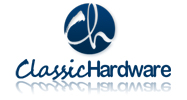Introduction:
In the vast and intricate landscape of industrial operations, there exists a silent workhorse that plays a crucial role in maintaining efficiency and productivity – the industrial brush. Often overlooked, these unassuming tools come in a variety of shapes, sizes, and materials, serving diverse applications across numerous industries. From cleaning and finishing to conveyor belt maintenance and material handling, industrial brushes contribute significantly to the smooth functioning of manufacturing processes. In this article, we delve into the world of industrial brushes, exploring their types, applications, and the pivotal role they play in enhancing industrial operations.

Types of Industrial Brushes:
- Bristle Brushes:
- Commonly made from natural or synthetic bristles, these brushes find applications in tasks requiring gentle cleaning or surface finishing.
- Natural bristle brushes are ideal for delicate applications, while synthetic bristle brushes offer durability and resistance to harsh chemicals.
- Wire Brushes:
- Constructed with metal wires, these brushes are designed for heavy-duty applications such as rust removal, weld cleaning, and surface preparation.
- Wire brushes come in various configurations, including cup brushes, wheel brushes, and hand brushes, catering to different industrial needs.
- Strip Brushes:
- Comprising a series of bristles attached to a metal or plastic strip, these brushes are commonly used for sealing, guiding, and conveyor belt cleaning.
- Strip brushes are adaptable and find applications in industries ranging from food processing to material handling.
- Spiral Brushes:
- Featuring coiled bristles, spiral brushes are effective in applications where a continuous cleaning or deburring process is required.
- These brushes are commonly used in the automotive and metalworking industries for deburring and edge blending.
Applications of Industrial Brushes:
- Surface Preparation:
- Industrial brushes play a vital role in preparing surfaces for painting, coating, or adhesive applications by removing rust, scale, and other contaminants.
- Conveyor Belt Maintenance:
- Brushes are essential for cleaning and maintaining conveyor belts, ensuring smooth material handling and preventing downtime due to debris buildup.
- Parts Cleaning and Deburring:
- In manufacturing processes, brushes are employed for cleaning and deburring machined parts, enhancing product quality and precision.
- Food Processing:
- Food-grade brushes are utilized in the food industry for tasks like cleaning conveyor systems, sanitizing equipment, and ensuring compliance with hygiene standards.
- Printing Industry:
- Industrial brushes are integral in the printing industry for tasks like cleaning printing rollers, removing excess ink, and ensuring high-quality prints.
Conclusion:
While industrial brushes may not always be in the spotlight, their significance in various industries cannot be overstated. From maintaining cleanliness and hygiene to enhancing the efficiency of manufacturing processes, these versatile tools contribute to the seamless functioning of industries worldwide. As technology advances, so too does the design and application of industrial brushes, ensuring they remain indispensable in the ever-evolving landscape of industrial operations. The next time you witness a smoothly running production line or impeccably finished product, take a moment to appreciate the unsung heroes – the industrial brushes – working diligently behind the scenes.
